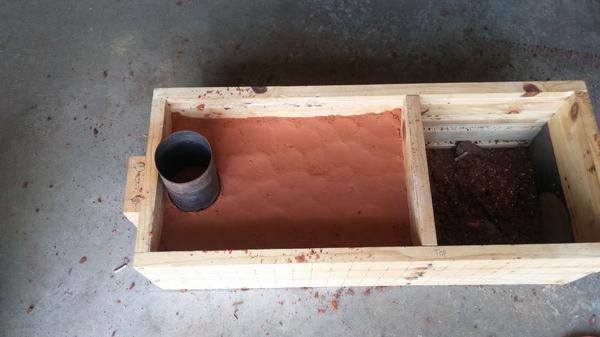Alcast Company Fundamentals Explained
Alcast Company Fundamentals Explained
Blog Article
Fascination About Alcast Company
Table of ContentsThe Buzz on Alcast CompanySome Of Alcast CompanyGet This Report about Alcast CompanyThe Main Principles Of Alcast Company The Ultimate Guide To Alcast CompanyTop Guidelines Of Alcast Company
The subtle distinction depends on the chemical web content. Chemical Comparison of Cast Light weight aluminum Alloys Silicon promotes castability by minimizing the alloy's melting temperature level and boosting fluidity during casting. It plays an important function in allowing complex molds to be loaded accurately. In addition, silicon adds to the alloy's strength and put on resistance, making it useful in applications where durability is crucial, such as automotive components and engine elements.It additionally boosts the machinability of the alloy, making it much easier to process into finished items. In this means, iron adds to the general workability of aluminum alloys.
Manganese adds to the toughness of light weight aluminum alloys and boosts workability. Magnesium is a lightweight element that supplies toughness and effect resistance to aluminum alloys.
The Only Guide for Alcast Company
It allows the manufacturing of light-weight components with excellent mechanical buildings. Zinc enhances the castability of light weight aluminum alloys and helps control the solidification process throughout spreading. It improves the alloy's stamina and hardness. It is typically found in applications where elaborate forms and great details are essential, such as ornamental castings and particular automobile components.

The main thermal conductivity, tensile stamina, yield strength, and elongation differ. Amongst the above alloys, A356 has the greatest thermal conductivity, and A380 and ADC12 have the lowest.
Getting The Alcast Company To Work

In precision casting, 6063 is appropriate for applications where intricate geometries and high-quality surface finishes are extremely important. Instances consist of telecommunication rooms, where the alloy's premium formability allows for streamlined and cosmetically pleasing styles while keeping structural stability. Similarly, in the Lighting Solutions industry, precision-cast 6063 parts develop elegant and efficient lighting components that call for elaborate forms and great thermal performance.
It results in a finer surface coating and better deterioration resistance in A360. The A360 displays exceptional elongation, making it perfect for complicated and thin-walled elements. In accuracy spreading applications, A360 is well-suited for industries such as Consumer Electronics, Telecommunication, and Power Devices. Its improved fluidness permits elaborate, high-precision components like mobile phone cases and interaction device housings.
Some Known Facts About Alcast Company.
Its unique properties make A360 a beneficial selection for accuracy spreading in these markets, boosting product resilience and high quality. Aluminum alloy 380, or A380, is a widely made use of spreading alloy with a number of distinct characteristics. It offers excellent castability, making it an optimal choice for accuracy casting. A380 displays good fluidness when molten, making certain detailed and detailed molds are properly reproduced.
In accuracy spreading, light weight aluminum 413 shines in the Customer Electronics and Power Devices have a peek at this website industries. This alloy's superior corrosion resistance makes it an excellent option for outside applications, making sure resilient, durable products in the pointed out markets.
Excitement About Alcast Company
The aluminum alloy you pick will significantly affect both the spreading process and the homes of the final item. Because of this, you must make your decision very carefully and take an educated strategy.
Figuring out one of the most ideal light weight aluminum alloy for your application will certainly mean weighing a vast array of qualities. These relative alloy features adhere to the North American Pass Away Spreading Organization's guidelines, and we've split them right into two categories. The initial category addresses alloy characteristics that influence the production process. The 2nd covers qualities affecting the homes of the last product.
Alcast Company Can Be Fun For Anyone
The alloy you pick for die casting directly influences numerous aspects of the spreading procedure, like just how easy the alloy is to collaborate with and if it is susceptible to casting defects. Hot cracking, additionally referred to as solidification fracturing, is a regular die casting defect for light weight aluminum alloys that can cause inner or surface-level tears or cracks.
Specific light weight aluminum alloys are more vulnerable to warm fracturing than others, and your choice needs to consider this. Another common defect discovered in the die spreading of light weight aluminum is pass away soldering, which is when the actors sticks to the die wall surfaces and makes ejection hard. It can damage both the cast and the die, so you must try to find alloys with high anti-soldering residential properties.
Deterioration resistance, which is already a remarkable characteristic of light weight aluminum, can differ considerably from alloy to alloy and is a crucial characteristic to consider relying on the environmental problems your product will be revealed to (aluminum metal casting). Use resistance is another residential or commercial property frequently sought in light weight aluminum products and can set apart some alloys
Report this page